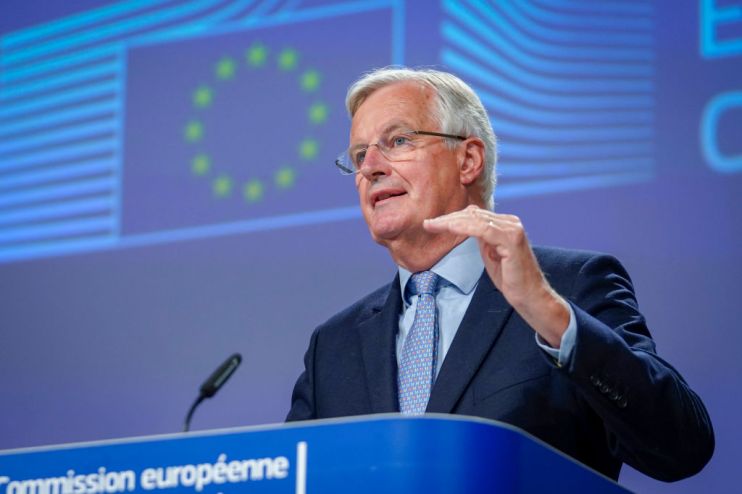Brexit: Michel Barnier says new UK-EU border friction here to stay

Much of the post-Brexit trade disruption and regulatory issues in the past two weeks will not be fixable, according to the EU’s chief Brexit negotiator Michel Barnier.
Barnier said today that many things “changed for good” when the UK left the EU’s single market and customs union on 31 December, adding that “there are mechanical, obvious, inevitable, consequences when you leave the single market and that’s what the British wished to do”.
There have been widespread reports of disruption for UK companies that trade with the EU since the Brexit transition period ended on 31 December.
This has meant supermarket shortages in Northern Ireland, border disruption for Scottish seafood exporters and difficulties for professional musicians trying to travel to the EU.
Barnier told the Financial Times that some of the disruptions, such as companies adapting to new cross-channel paperwork, were a temporary sign of “glitches, problems, breakdowns” that would be amended.
Before the Open newsletter: Start your day with the City View podcast and key market data
However, he also warned that more trade friction – such as border checks on agricultural goods and the ban of chilled meets being exported from the UK to the EU – are an inevitable part of Brexit.
“This agreement will not be renegotiated, it now needs to be implemented,” he said.
Scottish fish companies have found the past two weeks challenging, with many having problems getting approval to trade into Boulogne-sur-Mer, France, which is a major hub for seafood sales in Europe.
Boris Johnson told a Westminster committee yesterday that he understood “the frustrations of the fishing community” and that it will only be “a temporary frustration”.
“We will compensate those fishing businesses, but there is a massive opportunity for Scotland and the whole of the UK with the increase in quotas we get from the [Brexit trade] deal,” he said.
“Twenty-five per cent before the end of the transition period, hundreds of thousands of tonnes more fish and the ability to fish all the fish in Scottish waters form the end of that period.”
Nigel Driffield, professor of international business at Warwick Business School, said: “The fact that EU hauliers are finding it uneconomic to come to the UK may create further opportunities for UK firms, but at higher cost and with higher delays. We already have a potential shortage of skills in this sector, so this is likely to raise costs for importers and prices for consumers
“The bigger question relates to future investment decisions, and whether these frictions, plus hitherto unspecified rules of origin changes, lead firms to reconsider future investments.”